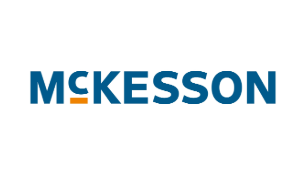At a Glance:
- Aspen Pharmacare chooses SAP S/4HANA and deploys it in the cloud to address inadequate IT infrastructure, provide flexibility and scalability.
- Firm consolidates and modernizes ERP systems to increase productivity, boost compliance.
- Aspen’s Venkatesan stresses the need for due diligence before launching major IT projects.
The pharmaceuticals industry is confronting many challenges in the global marketplace, including supply chain disruptions, demand for innovative drugs delivered quickly, security threats, and proliferation of regulations.
According to a
PwC report, pharmaceuticals firms have seen greater regulatory scrutiny globally in the following areas: sales and marketing practices, drug price reporting, patient privacy, clinical operations, post-marketing drug safety reporting, and quality control of manufacturing processes. In addition, aggressive prosecutions are targeting firms, leading to fines and, in some cases, criminal convictions.
South Africa-based Aspen Pharmacare responded to these challenges by upgrading its IT infrastructure to improve productivity and regulatory compliance. The drug firm had multiple ERP systems worldwide, both SAP and non-SAP, which created inefficiencies and compliance risks.
The company decided to move to SAP S/4HANA and deploy it on SAP HANA Enterprise Cloud to address these issues. It opted to use cloud infrastructure because its on-premise infrastructure was inadequate to handle SAP S/4HANA's requirements, explains Govind Venkatesan, Manager of Validation and Infrastructure at Aspen Pharmacare.
Before deploying SAP S/4HANA, Aspen conducted audits of the SAP data center in Germany and its support teams in India to ensure that they provided data security and privacy sufficient to comply with various pharmaceutical regulations. The company also trained its personnel on SAP modules and functionalities to assure the secure handling of sensitive data.
Change Management
Aspen implemented a change management program to assure the move to SAP S/4HANA went smoothly. "We were coming from a system that didn't have structured processes around managing master data. That was a big change for the users. So, the change management involved getting users to change their way of working. We invested a lot of time on this aspect," Venkatesan says.
As part of the effort, Aspen deployed SAP Fiori to ease the process for users. In implementing SAP Fiori, the company focused on the main user-facing processes first. Then, it moved to management-type processes, such as approvals and reporting. It also integrated its business warehouse and business intelligence with SAP Fiori and mapped user roles to functionalities.
"Our primary requirement was to comply with pharma regulations. We are a regulated company, and we must comply with GXP regulations. We have to ensure data integrity when the data leaves the organization. We had to consider a lot of aspects in terms of compliance and to ensure our design protected data security and privacy," he says.
GXP regulations are quality guidelines designed to assure that pharmaceutical products are safe and adhere to approved processes during their lifecycle. Data integrity is one of the key concepts forming the foundation of GXP rules.
Another requirement was to keep the data in Europe because a significant part of Aspen's business and many of its ERP users are in Europe, he explains. The company had to consider compliance with the European Union's General Data Protection Regulation (GDPR). Keeping the data in Europe helped with GDPR compliance.
Finance and Logistics Focus
In deploying SAP S/4HANA, Aspen initially focused on finance and logistics. In the beginning, the company used version 1511, so the finance model was mature, but logistics was not as mature, he says. Recently, Aspen upgraded to version 1909 and transitioned to using SAP Fiori across the board for user interaction.
"We were able to achieve the benefits that SAP envisioned with SAP S/4HANA, getting away from a transaction-based ERP to a tile-based or use-based design using SAP Fiori," he says.
Venkatesan said his team struggled with intermediate documents (IDOCs), which are data containers used to exchange information between any two processes that can understand the syntax and semantics of the data.
"Moving to SAP S/4HANA brought this new IDOCs concept. For someone coming from outside SAP, this is a new concept, especially on the middleware side. The implementation partner who's helping us with the middleware had to be upskilled and help us with the design," he relates.
Aspen Pharmacare subsequently moved from SAP HANA Enterprise Cloud to AWS. "It had nothing to do with how SAP HANA Enterprise Cloud was performing. It was about consolidation on the infrastructure side," he relates. Aspen is also currently implementing the SAP Master Data Governance tool.
The company plans to move everything to SAP S/4HANA over the next five years. This process will be carried out in two stages, he says. The remaining ERP systems will be migrated to existing on-premise SAP systems in the first phase. These systems will then be moved to SAP S/4HANA in the cloud during the second phase.
Aspen also plans to consolidate its numerous SAP Business Warehouse systems to improve efficiency and reduce compliance risk.
Lessons Learned
Venkatesan identifies three lessons learned from his company's move to SAP S/4HANA.
First, make sure to choose the right cloud provider for your needs. Once you have selected the right provider, offload your infrastructure work to the experts. That way, your teams can focus on configuration and the administration of the system.
Second, ensure to choose a qualified systems integrator who can provide you with the right resources, especially when you have tasks like data migration.
Third, perform your due diligence so you get what you want from your project team members as well as your system integrator and cloud provider.
Company Snapshot
Name: Aspen Pharmacare
Description:
Headquarters: Durban, South Africa
Industry: Pharmaceuticals
Employees: 9,100
Revenue: R37.8 billion (2.4 billion U.S. dollars)
Company details:
- Aspen supplies pharmaceuticals to more than 150 countries through 69 offices around the world
SAP solutions: SAP S/4HANA, SAP Business Warehouse, SAP Master Data Governance, SAP business objects and business intelligence
What This Means for SAPinsiders:
- Weigh compliance requirements when moving to SAP S/4HANA in the cloud. This is especially important if you operate in a highly regulated industry with sensitive data that needs to be secured and protected. Conduct audits of the cloud provider and any third-party teams involved in the project.
- Include a change management component in your project. Major changes to your IT system will impact employees and processes. Ensure you have a robust change management program to confirm that everyone is on board and participating in the project for a smooth transition. This should include vigorous training of your project team.
- Perform due diligence regarding your project team, cloud provider, and systems integrator. Thoroughly research your cloud provider and systems integrator to ensure they understand your specific needs and have the expertise to carry out your project. This will enable you to get precisely what you want from your project.









